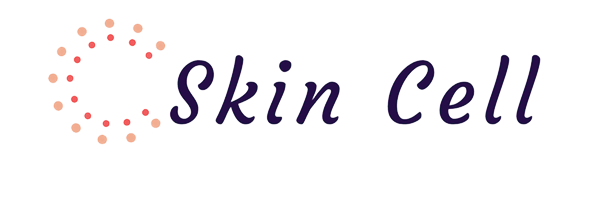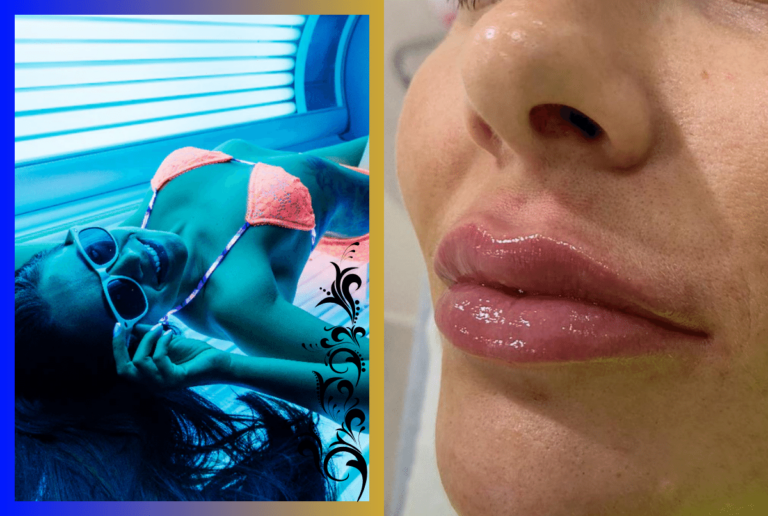Best Herbs For High Blood Pressure
There is no denying that almost half of the American population suffers from hypertension, also known as high blood pressure.

While prescribed medication can help cure this ailment, they leave life-long side effects, which is why people are on the lookout for natural alternatives like hypotensive herbs. Such herbs are known to naturally curb muscle spasms, reduce inflammation, support the urinary system and kidneys and strengthen the heart.
However, the problem is that the options of hypotensive herbs are plenty, and if you are a first-timer, you will most likely have a tough time choosing the right one. That is why we have written this guide, discussing the best herbs for high blood pressure to help you out.
We have also talked about some other natural methods to treat high blood pressure and included a detailed FAQ section towards the end to clear all your doubts. So, make sure you read the entire article.
If you are ready, let’s get straight to the good stuff.
Top 13 Herbs For High Blood Pressure
These are the most effective herbs that could help lower high blood pressure:
1. Cat’s Claw
First, let’s learn a bit about cat’s claw, a herb found in China that could help treat many diseases, including high blood pressure [1]. It features various chemical compounds such as rhynchophylline and hirsutine, which could act as natural calcium channel blockers to reduce blood pressure.
Besides, these special compounds have been shown to stimulate blood vessels to create nitric oxide, a chemical compound that could help blood vessels dilate and relax [2], [3]. It also consists of adaptogenic properties that could increase your blood pressure when it’s low and lower your blood pressure when it’s high.
That said, keep in mind that the beneficial effects of this herb are mostly supported by studies conducted on animals, not human beings.
2. Grapes
Grapes have been found to feature chemical compounds such as polyphenols that could manage blood pressure by changing the molecular mechanisms of arteries and minimizing angiotensin activity.
3. Hawthorn Berries
As far as hawthorn berries are concerned, they have been used for the longest time in traditional medicine because of their ability to strengthen heart function. Their extract can potentially prevent chronic heart failure [4]. Additionally, they consist of flavonoids, improving cardiovascular health and lowering blood pressure [5].
4. Moringa Oleifera
Moringa oleifera has been used since time immemorial for treating hypertension. In fact, it is one of the most beneficial medicinal herbs, according to Ayurveda. Also, studies suggest that moringa extract enhanced cardiac diastolic functions and lowered nocturnal heart rate in hypertensive rats [6].
So, you might want to include moringa oleifera in the diet if you suffer from high blood pressure.
5. Celery Seeds
Next, we have celery seeds, which are basically a versatile spice packed with loads of nutrients like fiber, calcium, manganese, magnesium, and iron.
Quite surprisingly, many research studies suggest that celery seeds could help reduce high blood pressure. According to a study, celery seed extract lowered the blood pressure in rats that previously had high blood pressure but not in those with normal blood pressure [7].
Many researchers are of the opinion that the compounds present in celery seed extracts could work as natural calcium channel blockers to lower blood pressure. Celery seeds are also a quality dietary fiber source linked to reducing high blood pressure [8], [9].
However, we must mention that celery seeds are still subject to human research.
6. Garlic
Now, let’s talk about garlic, another beneficial herb that contains several compounds that could benefit your cardiovascular health. In particular, it features sulfur compounds like allicin that could relax blood vessels and promote better blood flow. Collectively, such factors could help reduce blood pressure [10], [11].
According to a review of 12 research studies conducted on over 550 individuals with high blood pressure, garlic consumption significantly helped reduce diastolic blood pressure and systolic blood pressure. To be precise, a decrease of 5.5 mm Hg was found in diastolic pressure, and a decrease of 8.3 mm Hg was found in systolic pressure.
Interestingly, this decrease was pretty similar to the effects of medications on blood pressure [12].
7. Cardamom
Cardamom is a herb that needs no introduction as we are all familiar with its sweet aroma and intense taste. It is loaded with numerous antioxidants that could prove beneficial in lowering blood pressure. According to a study, daily consumption of cardamom powder can significantly lower blood pressure in those with preexisting high blood pressure [13].
Also, other studies conducted on animals suggest that this herb lowers blood pressure by working as a diuretic and natural calcium channel blocker [14]. If you don’t know what a diuretic is, it is a compound that helps eliminate water accumulation through urination.
Again, while these studies show promising results, a lot more research work needs to be done in this aspect. Scientists and researchers should conduct more studies to find out the effects of cardamom on humans even further.
You could incorporate cardamom into meals or even take a cardamom-based supplement after consulting a medical professional.
8. Cinnamon
Another herb worth mentioning when it comes to lowering high blood pressure is cinnamon, which is derived from the inner bark of the Cinnamomum genus. Since ancient times, people have used it in traditional medicine to cure cardiovascular conditions like high blood pressure.
According to research conducted on animals, it could help relax and dilate the blood vessels [15]. Another study showed that taking cinnamon could help reduce diastolic and systolic blood pressure by 3.9 mm Hg and 6.2 mm Hg, respectively. Its effect was more intense when individuals took the herb regularly over 12 weeks [16].
So, go ahead and add some cinnamons to your meals. You can also consider taking cinnamon supplements.
9. Thyme
With several healthy compounds, thyme is another beneficial herb that you should know about. One such major compound that is present in the herb is Rosmarinic acid, which, according to research, has several benefits, including increased blood flow, reduced blood sugar levels, and inflammation. It could also help lower high blood pressure [17], [18].
A few studies conducted on animals have shown that consumption of rosmarinic acid helped lower systolic blood pressure significantly by blocking ACE, commonly known as angiotensin-converting enzyme [19], [20]. Let us tell you that ACE is responsible for raising blood pressure and blood vessels. Hence, blocking it could significantly lower blood pressure.
Moving on, a few other animal studies have suggested that the consumption of thyme extract minimized the risks of cardiovascular diseases [21].
10. Ginger
Talking about ginger, let’s just say that it is considered an integral part of alternative medicine. After all, people have been using it for ages to enhance cardiovascular health such as blood pressure, cholesterol levels, and circulation [22].
Several studies (both animal and human) have suggested that consuming ginger can lower blood pressure in numerous ways. It works as a natural ACE blocker and calcium channel blocker [23], [24]. Most blood pressure medications feature these two types of blockers.
According to another study, those who took 2-4 grams of ginger every day had a very low risk of having high blood pressure [25].
Since ginger is delicious, you should have no problem incorporating it into your daily diet. Alternatively, ginger supplements can be considered as well; they tend to be more concentrated.
11. Bacopa Monnieri
Mainly found in South Asia, Bacopa monnieri is a herb that Ayurvedic experts have used to cure several ailments such as high blood pressure, memory issues, and anxiety. According to a few animal studies, this herb could help reduce diastolic and systolic blood pressure levels by releasing nitric oxide and stimulating blood vessels [26], [27].
However, a human study performed on 54 healthy individuals showed that while this herb enhanced the mental aspects, it did not have any effect on blood pressure. So, there needs to be more research on the effects of Bacopa monnieri on high blood pressure.
The herb is available in capsules and powders, so you can easily get it from online stores.
12. Parsley
We are almost at the end of our list, and now it’s time to talk about parsley, a popular herb used in Middle Eastern, European, and American cuisine. It features a wide range of beneficial compounds such as dietary carotenoids and vitamin C that could help lower blood pressure [28].
According to animal studies, parsley minimized diastolic and systolic blood pressure by working as a calcium channel blocker [29]. However, more research is required to understand its effects better.
13. Basil
Last but not least, let’s take a quick look at basil, another popular herb used as alternative medicine because of its potent compounds. Sweet basil features high amounts of eugenol, which could manage high blood pressure and offer various other health benefits [30].
According to a few studies conducted on animals, extracts of sweet basil could thin the blood and relax blood vessels, thereby reducing blood pressure [31], [32], [33]. That said, more research is required to understand its effects on humans.
Other Ways To Lower Blood Pressure
The herbs that we just talked about are not the only natural solution to treat high blood pressure levels. It has been found that dietary and lifestyle changes can also help curb hypertension [34]. So, here we have mentioned a few other ways to naturally lower blood pressure:
1. Eliminate Stress
Anxiety and stress are the two things that could spike your blood pressure levels dangerously. If you already suffer from hypertension, you should start managing stress immediately. We strongly recommend incorporating certain relaxation techniques into your daily routine, such as:
- Affirmations
- Breathwork
- Progressive relaxation
- Mindfulness
- Meditation
2. Maintain A Healthy Diet
Hypertensive people are often advised to follow the famous DASH diet, which is a balanced and flexible eating plan based on [35]:
- Nuts
- Skinless poultry
- Fruits
- Legumes
- Whole grains
- Vegetables
- Fat-free dairy products
- Fish and seafood
Remember that the DASH diet restricts added sugar, sodium, trans fats, and saturated fats.
3. Consider Quitting Smoking
If you are a smoker, quit smoking immediately as it spikes the normal range of blood pressure and puts you at risk of developing hypertension [36]. Quitting this bad habit can reduce the risk of developing various cardiovascular diseases in the long run.
4. Regular Exercise
You must incorporate exercise into your daily routine. Both resistance training (bodyweight exercises) and aerobic exercise such as cycling, running, and walking could significantly lower diastolic and systolic blood pressure.
Additionally, it is worth noting that exercise and workouts make the heart strong. Not to forget, they help in weight loss, too, which could further lower the risk of developing hypertension.
5. Cut Down On Alcohol
It is no secret that drinking alcohol can slightly spike the normal levels of one’s blood pressure. But you may be surprised to know that alcohol is associated with 16% of hypertension occurrences worldwide [37].
While it is true that low to moderate consumption of alcohol is beneficial for the heart, according to research, the benefits could be easily outweighed by its adverse effects. So, we strongly recommend that you reduce your alcohol consumption to be on the safe side.
6. Consume Calcium-Rich Foods
If you suffer from high blood pressure levels, incorporate calcium-rich food into your diet. Even though calcium supplements have not been shown to reduce blood pressure levels conclusively, foods rich in calcium appear to be linked to healthy blood pressure levels [38], [39].
You can obtain adequate calcium levels by eating dairy products and leafy greens.
7. Regular Monitoring And Visits To Your Doctor
Make sure that you are monitoring your blood pressure regularly at home. This will help you determine whether your dietary and lifestyle changes are working. Furthermore, by keeping tabs on your blood pressure levels, you can inform the doctor in case of health complications.
You can buy a blood pressure monitor from a medical store without any prescription to monitor your blood pressure. But we suggest talking to your doctor first about home monitoring. Another thing that we would like to mention in this regard is that you should visit your doctor regularly as it is a crucial part of managing high blood pressure.
If your blood pressure is under control, ask the doctor about how frequently you would need to check it and follow their advice accordingly.
8. Getting Support Helps
Last but not least, you should consider getting support from friends and family members as it can help improve both your physical and mental health. They may assist you during your doctor visits or help with exercise programs.
Join a support group if you feel you require support beyond friends and family members. This may connect you with individuals who may provide you with emotional or moral support and practical advice on how to deal with hypertension.
Frequently Asked Questions (FAQs)
We have answered some commonly asked questions about high blood pressure to clear all your queries. Hopefully, you will find the answers helpful.
1. What are the complications associated with high blood pressure?
As you might already know, high blood pressure causes immense pressure on the artery walls, which puts your organs as well as blood vessels at risk of getting damaged. Needless to say, the higher the blood pressure, the more severe the damage.
Some of the complications could include:
- Dementia
- Affects the ability to think
- Metabolic syndrome
- Thickened blood vessels
- Weakened kidney blood vessels
- Heart failure
- Aneurysm
- Stroke or heart attack
2. When should I consult a doctor?
You should always consult a doctor before taking any medications, whether natural or chemical. Also, after taking any natural remedies or prescribed medication, if your blood pressure keeps fluctuating, visit a healthcare professional who’ll assess your medical condition and provide a treatment plan accordingly.
Always seek medical help immediately if you:
- Feel dizzy
- Have headaches
- Have difficulty speaking
- Experience shortness of breath
- Feel weakness and numbness
- Experience back or chest pain
3. What is the most effective herb to cure hypertension?
Sorry to disappoint, but no herbal remedy is backed by enough scientific research to prove that it could effectively treat high blood pressure. If you are planning to take some herbal remedies for treating hypertension, we suggest consulting a doctor first to determine which herb would be ideal for you.
4. Can I lower my blood pressure levels naturally without taking medications?
Yes, you can, but you will have to make certain lifestyle changes. We strongly recommend being physically active regularly, reducing stress, and eating plant-based foods.
5. Do I need to check my sodium intake to lower my high blood pressure levels?
Yes, you need to ensure that you are consuming less sodium to lower high blood pressure. This is because sodium tends to increase the pressure in the blood vessels and the blood volume.
It has been found that minimizing sodium intake can help lower blood pressure in certain people by 2-8 mm Hg.
Notably, sodium intake should not be more than 2,300 mg per day for healthy people. And those who have diabetes, high blood pressure, or heart disease should limit their sodium intake to 1,500 mg every day.
Final Thoughts
With that, we have come to the end of our informational guide. And we hope that by now, you have learned a great deal about the best herbs for high blood pressure.
High blood pressure can be prevented, and the best way to keep it under control is through a healthy diet, proper medication, and regular exercise. It is worth noting that the herbs that we have talked about could interact with high blood pressure medication, so always consult your doctor before adding them to your diet.
On that note, let us call it a day. Until next time, stay healthy!
References
1. https://pubmed.ncbi.nlm.nih.gov/8208063/
2. https://journals.plos.org/plosone/article?id=10.1371/journal.pone.0119477
3. https://www.mdpi.com/2076-3417/10/8/2668/htm
4. https://www.herbwisdom.com/herb-hawthorn-berry.html
6. https://pubmed.ncbi.nlm.nih.gov/26864583/
7. https://pubmed.ncbi.nlm.nih.gov/23735001/
8. https://www.sciencedirect.com/science/article/pii/S0102695X16301338
9. https://pubmed.ncbi.nlm.nih.gov/26758499/
10. https://pubmed.ncbi.nlm.nih.gov/27990229/
11. https://pubmed.ncbi.nlm.nih.gov/25525386/
12. https://pubmed.ncbi.nlm.nih.gov/32010325/
13. https://pubmed.ncbi.nlm.nih.gov/20361714/
14. https://pubmed.ncbi.nlm.nih.gov/18037596/
15. https://pubmed.ncbi.nlm.nih.gov/26109781/
16. https://pubmed.ncbi.nlm.nih.gov/31617744/
17. https://pubmed.ncbi.nlm.nih.gov/27462144/
18. https://pubmed.ncbi.nlm.nih.gov/32184728/
19. https://pubmed.ncbi.nlm.nih.gov/29425648/
20. https://pubmed.ncbi.nlm.nih.gov/17977703/
21. https://pubmed.ncbi.nlm.nih.gov/25272894/
22. https://pubmed.ncbi.nlm.nih.gov/31935866/
23. https://pubmed.ncbi.nlm.nih.gov/30972845/
24. https://pubmed.ncbi.nlm.nih.gov/15613983/
25. https://pubmed.ncbi.nlm.nih.gov/28336112/
26. https://pubmed.ncbi.nlm.nih.gov/21762768/
27. https://pubmed.ncbi.nlm.nih.gov/29242090/
28. https://pubmed.ncbi.nlm.nih.gov/25660385/
29. https://pubmed.ncbi.nlm.nih.gov/31252093/
30. https://pubmed.ncbi.nlm.nih.gov/24921632/
31. https://pubmed.ncbi.nlm.nih.gov/20448636/
32. https://pubmed.ncbi.nlm.nih.gov/19505553/
33. https://pubmed.ncbi.nlm.nih.gov/16469363/
34. https://www.ncbi.nlm.nih.gov/pmc/articles/PMC5575221/
35. https://www.nhlbi.nih.gov/education/dash-eating-plan
36. https://www.nature.com/articles/s41598-017-04552-5
37. https://pubmed.ncbi.nlm.nih.gov/16922819/






